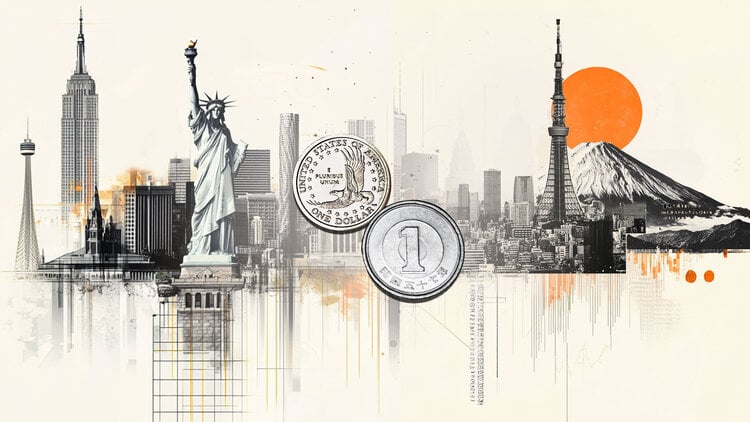It took a few weeks of sleeping in grenade crates and hiding his face from the Ukrainians amid a growing sense of guilt. Until the low-ranking Russian officer came to a conclusion: this battle was not his.
“We were dirty and tired. The people around us were dying. I didn’t want to feel a part of it, but I was a part of it,” the soldier told CNN .
The man said he went to his commander and gave up on his mission.
For your safety, the CNN will not reveal the officer’s name or include personal details that would help identify him.
I didn’t want to feel a part of it, but I was a part of it.
Russian military
His story is remarkable, but it may also be one of many, according to opponents of the war in Russia and Ukraine who say they have heard of many cases of soldiers, both career and conscript, who refused to fight.
Russian troops have struggled with low morale and heavy losses in Ukraine, according to assessments by Western officials, including the US Pentagon. The UK’s Intelligence, Cybersecurity and Security Agency says some military personnel refused to carry out orders.
The Russian Defense Ministry did not respond to a request for comment from CNN .
an unknown mission
The officer who spoke to the CNN he said he was part of the massive troop in western Russia that sparked global fears for Ukraine even before the invasion. But he said he didn’t think much about it, not even on February 22 of this year, when he and the rest of his battalion were forced to hand over their cell phones while standing in Krasnodar, southern Russia, without any explanation.
That night, they spent hours painting white stripes on their military vehicles. Then the superiors asked them to wash the paintings. “The order has changed, now you must draw the letter Z, like Zorro’s”, they told them.
“The next day we were taken to Crimea. To tell you the truth, I didn’t think we were going to Ukraine. I didn’t think it would come to this,” the man said.
On February 24, while his unit was meeting in Crimea (the Ukrainian region annexed by Russia in 2014), President Vladimir Putin launched a new invasion of Ukraine.
But the officer said he and his companions did not know, as no news had been passed to them and, without their phones, they were out of touch with the outside world.
We were not indoctrinated with some sort of rhetoric about the ‘Ukrainian Nazis’. Many did not understand the reason for all this and what we are doing here
Russian military
Two days later, they were sent to Ukraine.
“Some men have openly refused. They wrote a report and left. I don’t know what happened to them. I stayed. I do not know why. The next day we went to Ukraine,” she recalled.
The officer said he did not know the purpose of the mission. According to him, Russian President Vladimir Putin’s bombastic claims that Ukraine was part of Russia and needed to be “denazified” did not reach the men called upon to fight.
“We were not indoctrinated with some kind of rhetoric about ‘Ukrainian Nazis’. Many did not understand the reason for all this and what we are doing here,” he said.
he told the CNN who expected a diplomatic solution and felt guilty that Russia had invaded Ukraine. But he added that he was not well versed in politics.
In conflict
The first thing the soldier remembers after his unit crossed the border in a long column of vehicles was seeing Russian supply crates scattered everywhere and piles of destroyed equipment.
“I used to sit in the KAMAZ [caminhão], holding a gun firmly. I had a pistol and two grenades with me,” she recounted.
The battalion headed northwest toward Kherson. As they approached a village, a man with a whip jumped out and started whipping the convoy and shouting, “You all are f***ing!” the officer recalled.
For the first week or so, I was in a state of shock. I didn’t think about anything
Russian military
“He almost climbed into the cabin where we were. His eyes were swollen from crying. The scene left me very impressed,” he added. “In general, when we saw the residents, we were tense. Some would hide guns under their clothes and when they got close they would shoot.”
He said he hid his face out of shame and safety, because he felt ashamed to be seen by Ukrainians. In their land.
The Russians also suffered heavier attacks, the man said, with mortars aimed at them on the second or third day they were in Ukraine.
“For the first week, I was in shock. I didn’t think about anything,” she told the CNN . “I would go to sleep thinking, ‘Today is March 1st. Tomorrow I will wake up, it will be March 2; the main thing is to live another day’. Several times the bombs fell very close to us. It is a miracle that none of us died,” she said.
Reactions in the ranks
The officer told the CNN that he was not the only soldier worried or confused about why he was being sent to invade Ukraine.
But he also remembers cheering up when he learned that combat bonuses would soon be paid out.
“One person said something like, ‘Oh, 15 more days here and I’ll pay off my loan,’” he recalled.
He told me that there could be a criminal case against me. Refusal is treason. But I stood firm
Russian military
After a few weeks, the officer was positioned closer to the rear, tracking equipment that needed repairs.
There, he became more aware of what was happening and had more time and energy to reflect.
“We had a radio receiver and we could listen to the news,” he said. “That’s how I learned that stores are closing in Russia and the economy is collapsing. I felt guilty about it. But I felt even more guilty because we came to Ukraine.”
He said his resolve had hardened to the point that there was only one thing he could do.
“In the end, I gathered my strength and went to the commander to write a letter of resignation,” he told CNN .
At first, the commander rejected the request and told him that it was impossible to refuse to serve.
“He told me that there could be a criminal case against me. Refusal is treason. But I held on. He gave me a sheet of paper and a pen,” the officer told CNN adding that he wrote his resignation letter right there.
Reports of more ‘refuseniks’
Even within the tightly controlled environment of the Russian media, there were other reports of soldiers refusing to fight.
Valentina Melnikova, executive secretary of the Union of Committees of Mothers of Soldiers of Russia, said many complaints and concerns were heard as the first units left Ukraine to rest.
“Soldiers and officers wrote letters of resignation, which they failed to deliver properly. The main reasons are, first of all, are the [baixo] moral and psychological state. And the second reason is moral convictions. They wrote letters then and they continue to write reports now,” said the executive secretary.
Melnikova, part of the organization formed in 1989, said all military personnel have the right to submit requests, but acknowledges that some commanders may refuse them or try to intimidate soldiers.
The organization often advises soldiers on how to write these letters and provides legal advice. The Ukrainian Intelligence Directorate reported that in several Russian units, specifically the 150th Motorized Rifle Division of the 8th Army of the Southern Military District, up to 60% to 70% of soldiers refused to serve.
THE CNN cannot verify this number.
In Russia, Melnikova told CNN that there were “many” cases of soldiers refusing to fight in Ukraine, but he did not provide details, citing legal and security concerns.
Aleksei Tabalov, a human rights activist and director of an organization that helps Russian recruits, told CNN who personally consulted two soldiers who left the military.
“We spoke to two who refused to fight and came to us, and they said that in their brigade another 30 did the same thing, refusing to fight,” said Tabalov.
The activist said that, when resigning, the soldiers cited that they had not agreed to participate in a special operation against Ukraine at the time they signed the contract.
Absent without permission from the Russian army is a criminal offense punishable by imprisonment. However, those serving under contract have the legal right to resign within ten days of leaving the service, providing an explanation of the reason for their departure.
“I cannot say that it is a mass phenomenon, but it is a very strong movement. If we estimate all the cases from other organizations, plus the indirect information, the number exceeds one thousand”, he detailed.
According to him, recruitment is still ongoing in the country, and new soldiers often come from poorer regions with less prospects.
I don’t know what will happen from now on
Russian military
Thousands of Russian soldiers have died in Ukraine since the beginning of the war. Ukraine’s Armed Forces estimate Russian losses at more than 22,000 people. The last time the Russian Defense Ministry addressed losses was on March 25, reporting the deaths of 1,351 military personnel.
The ministry did not respond to a request to update the CNN .
The officer who spoke to the CNN is now with his family.
Source: CNN Brasil
I’m James Harper, a highly experienced and accomplished news writer for World Stock Market. I have been writing in the Politics section of the website for over five years, providing readers with up-to-date and insightful information about current events in politics. My work is widely read and respected by many industry professionals as well as laymen.







